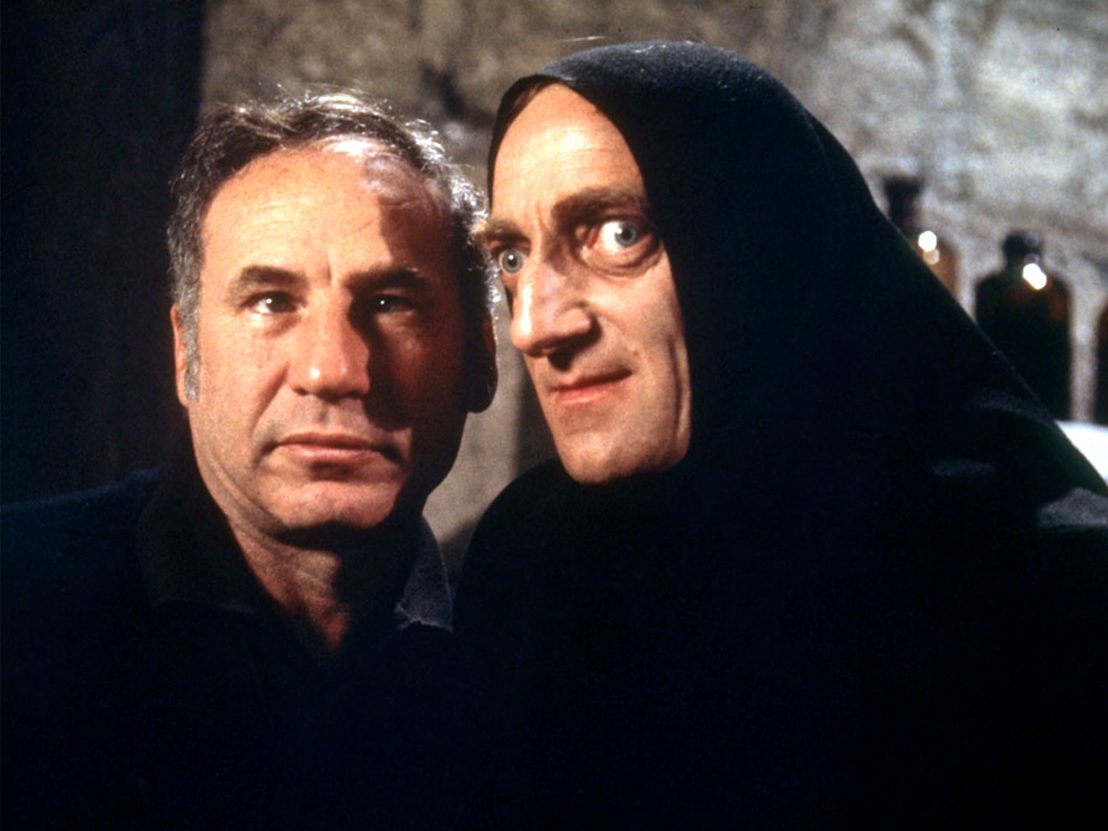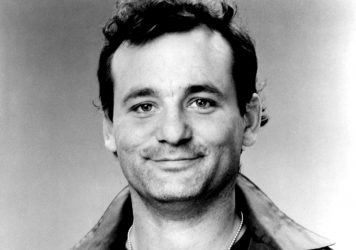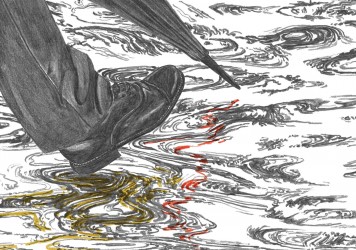
When Mel Brooks’ first film, The Producers, was released in 1968, the horrors of World War Two were still fresh in the minds of many. One man, aggrieved by the frivolity of a film that sought to lampoon Nazism, confronted the director with the words, “I was in World War Two.” Brooks, without missing a beat, replied, “So was I, I didn’t see you there.”
It’s easy to forget, in this era of fake news and social media echo chambers, that the 91-year-old man who appeared on The Jonathan Ross Show recently to promote the Young Frankenstein musical fought the actual Nazis. During the same press tour, the veteran filmmaker caused a stir on BBC Radio 4 for suggesting that political correctness could prove “the death of comedy”. Without wishing to analyse the comments in depth, it is notable that the bulk of the complaints have characterised Brooks as an “old white man” while conveniently omitting the fact that he is, first and foremost, a Jew (something only Homer Simpson had previously failed to realise).
The comedian is the history of American Jewish humour in human form and his work has tended to punch up. He hasn’t made a film since 1995 and, it might be argued, hasn’t made a great film since a good while before that. To quibble about such things is to be reminded of the famous retort of Joseph Heller (a good friend of Brooks’) when asked why he hadn’t written anything as good as ‘Catch-22’: “Who has?”
Having conquered television, Brooks turned his hand to cinema in his early forties. Between 1968 and 1977, he made some of the finest comedy films in the history of the medium, triumphs of bad taste and affectionate homage. It is important we do not lose sight of his legacy on screen, a genuine trailblazer who has influenced everyone from Sacha Baron Cohen to the Farrelly brothers.
A clip of Brooks deconstructing the madness of BBC’s The One Show went viral recently as the presenters attempted to segue from light-hearted chat to a story about a woman attempting to trace her long-lost father. “What a crazy show this is,” Brooks remarked, presumably a thought that has occurred to many a guest but only he would have the audacity to articulate.
In a sense, he has spent his entire career breaking the fourth wall with anarchic glee. Prior to The Producers, Brooks made his debut with a short animated film called The Critic in which he mumbled his displeasure in a thick eastern European accent about a lack of plot over a series of surreal images. He was deconstructing before he was constructing and nabbed an Academy Award for his troubles. Incidentally, he is one of only twelve people in history to win an Oscar, Emmy, Grammy and Tony. Not bad for a man synonymous with fart jokes.
Brooks has never seen a distinction between high and low comedy, just between good jokes and bad ones. In High Anxiety, his inspired send-up of the work of Alfred Hitchcock, there is a nod to the master of suspense’s favoured zoom-in-through-glass technique except in this version the window breaks noisily. The iconic English filmmaker actually sat down with Brooks prior to filming and even pitched a joke in which the hero is being chased by baddies and reaches the end of a dock. He spots a boat about 12 feet away and leaps on to it only to discover it’s actually coming in. Sadly, for budgetary reasons, it was never shot, but Hitchcock did like the film enough to send the director an expensive bottle of wine and a note which read: “A small token of my pleasure, have no anxiety about this.”
Brooks’ finest work displays a profound love of cinema and, undoubtedly influenced by this, in the 1980s he produced classics like The Fly and The Elephant Man. When Paramount executives saw a cut of the latter and asked David Lynch to cut the surrealist sequences that bookend the film, the comedian wasn’t in the mood for joking and said: “We are involved in a business venture. We screened the film for you, to bring you up to date as to the status of that venture. Do not misconstrue this as our soliciting the input of raging primitives.” The film was released unchanged and Brooks even went so far as to keep his name off the credits so as not to give audiences the wrong idea about its content.
These days, when not working on musicals, Brooks spends his evenings with his old friend Carl Reiner. Barry Cryer once remarked that he’s at an age where he’ll no longer buy green bananas and the two widowers are spending their time wisely, mainly watching movies. But, as his recent TV appearances have shown, Brooks has no intention of going out with a whimper. In his own words: “If you’re alive, you’ve got to flap your arms and legs, you got to jump around a lot, you got to make a lot of noise, because life is the very opposite of death. And therefore, as I see it, if you’re quiet, you’re not living. You’ve got to be noisy, or at least your thoughts should be noisy, colourful and lively.” He’s certainly made a noise, the reverberations of which will surely be felt for generations to come.
Published 14 Oct 2017

The events of Tim Robbins’ 1992 directorial debut feel scarily prophetic when viewed today.

Co-star Zach Galligan reveals the inside story of ‘lost masterpiece’ Nothing Lasts Forever.

The titan of big screen comedy is at his understated, singular best in Hal Ashby’s tale of a simple-minded gardener.